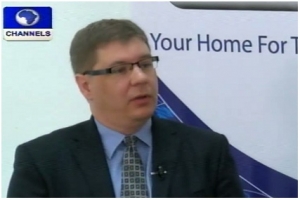
On the side-line of the ongoing forum on Wednesday, Mr Robert, a business development consultant, said that the forum would be focusing on how to restructure the economy of the state, exploring all renewable energy sources.
He emphasised that there was the need to focus more on the infrastructure, which is electricity that is reliable and relatively cost effective and how that would empower the economy to produce jobs and not looking at the oil and gas sector as a job producer.
“The oil and gas is not a large producer of jobs, either the mining sector,” he said.
Mr Robert also said that “while the energy sector is considered, there is also the need for some form of sustainability that does not destroy the environment at the same time”.
Comparing Port Harcourt to Alberta in Canada, where he is from, which has a population less than five million and produces 10,000 megawatts of electricity, a number higher than what Nigeria with a population of over 150 million has, Mr Roberts insisted that more renewable energy sources should be explored in Nigeria to increase the megawatts currently below 8,000 megawatts.
“We will be focusing on How Rivers State can begin to use solar energy and how we can intensify the transition over time because we cannot do clean energy overnight. We cannot shift to renewable energy overnight. We have to take our time because it is capital intensive.
“As the electricity sector changes it becomes more capital intensive.
“If you have more electricity in Nigeria and it was cheaper and reliable, you will have more manufacturing and more service based industries,” he explained.
On the issue of control of natural resources, he said that putting the control of the resources in the care of the state and province would go a long way in ensuring that they were properly utilised.

